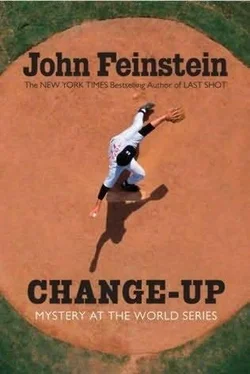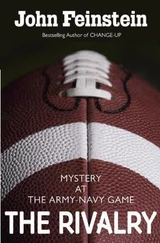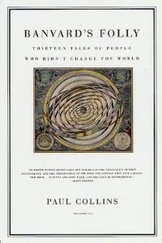“Joe Molloy?” DeSoto said.
Susan Carol shook her head. “Norbert Doyle,” she said. She reached across the desk to shake his hand. “Thanks very much for the meal. And the conversation.” She turned to Stevie. “We need to go catch that train.”
Miles Hoy tried hard to turn down the hundred-dollar bill Kelleher had given Stevie that morning to pass on to him.
“I’m not allowed back in Washington if I’m still carrying this money,” Stevie said. “You’ve more than earned it.”
“I’ll take it on one condition,” Miles said. “You invite me to Philly for a game next year and Susan Carol comes up for the game too.”
“Done,” they both said. Hugs were exchanged and they made the train with about a minute to spare.
As soon as they were settled, Stevie called Kelleher, who was headed to the ballpark. “What’s the weather like back there?” Stevie asked.
“Lousy,” he said. “It’s drizzling right now and cold. They say the rain will clear off but the temperature will probably be in the forties for the game.”
Stevie groaned at the thought. He walked Kelleher step by step through their afternoon. When he was finished, Kelleher sighed.
“Let’s assume that Hatley’s version is the truth,” he said. “That would mean Molloy has now lied twice. Is there more that we don’t know? That he’s not telling us?”
Stevie thought. “Well, if he knows that going straight to the restaurant rather than just calling Hatley might have been the difference…”
“Then he’s got a lot to feel guilty about,” Kelleher said. “It’s bad police work, and really bad human work. It probably would hurt his career. And it could hurt his reputation even more, especially with Norbert Doyle being a national hero right now.”
“Why wouldn’t he just tell us about it off the record?” Stevie said.
“With his wife maybe listening around a corner?” Kelleher said. “I doubt he’s ever told her or anyone else the truth, if that’s what the truth is. Plus, you guys told him he couldn’t go off the record today, right?”
“True,” Stevie said. “So, what do we do now?”
“We wait until tomorrow and find a way to talk to Norbert Doyle. Whether he’ll tell the truth is a completely different question.”
Stevie hung up and filled Susan Carol in on what Kelleher had said. Which reminded him of something.
“The thing you knew that you didn’t want to tell me last night,” he said. “It was rehab, right?”
She nodded. “Yes. Now that three different people told you about it today, I’m off the hook. I never broke my word to David, and you’ve got the story anyway.”
“I’m not so sure what we’ve got,” he said.
“We’re close,” she said. “I think Bobby’s right. There is a missing piece to the puzzle. Molloy is still lying for some reason, and Doyle or Felkoff or both didn’t want us talking to Hatley because he might tell us the truth.”
“But the part Molloy seems to be lying about makes him look bad, not Doyle,” Stevie said. “Molloy and Hatley both agreed that Norbert shouldn’t have been driving and probably caused the accident because he was drunk.”
Susan Carol nodded. “You’re right. The big difference is that in the Molloy version he’s the hero because he forced Doyle to go to rehab. In the Hatley version he and Norbert decided that on the night of the accident.”
“Seems to me we’re splitting hairs here-especially in terms of what the public outside of Lynchburg, Virginia, cares about.”
“Good point,” she said.
Stevie reopened The Great Gatsby, hoping to get some serious reading done before they got back to Washington. It wasn’t a very long book if he could just focus for a while. Susan Carol was working on her computer, finishing her paper, writing along as if it were a ball game sidebar. He decided to try to finish his book before the train pulled back into Union Station.
Twenty minutes later he closed the book after having read about two pages. He couldn’t stop thinking about Doyle and Molloy and Hatley and Analise and David and Morra. He must have dropped off, because Susan Carol roused him as the bright lights of the station came into view.
“Come on, Sleeping Beauty,” she said. “With luck, we’ll be at the park in time for first pitch.”
They actually walked in during the national anthem, drawing comments from their seatmates about how nice it was of them to show up.
“Believe it or not, we had to catch up on our schoolwork today,” Susan Carol said as they sat down. “We’re only moonlighting here, you know.” In her case, at least, there was some truth in what she was saying.
Game five, unfortunately, was a lot like game one, except that the weather was miserable. Even wearing a sweater and a rain jacket, Stevie found himself shivering as the temperature kept dropping.
The Red Sox jumped ahead 3-0 in the first inning when Jason Bay hit a three-run home run, and the Nationals simply couldn’t touch Josh Beckett’s pitching. He left after seven innings with a 5-0 lead even though he had thrown only eighty-two pitches.
“Why would they take him out after he’s only thrown eighty-two pitches?” Stevie asked.
“So they can bring him back if they need him to pitch an inning or two of relief in game seven,” Barry Svrluga said. “Smart move by Francona, unless the bullpen blows up.”
It didn’t. Okajima walked Ryan Zimmerman and Adam Dunn to start the bottom of the eighth and stir the crowd slightly. John Farrell, the Red Sox pitching coach, trotted to the mound.
“What does he say to a Japanese-speaking pitcher in this situation?” Stevie asked.
“I think ‘Throw strikes, damn it’ is a universal in any language,” Svrluga said.
“I’ve always wondered what they say on the mound,” Susan Carol said.
“Well, it’s not like Bull Durham,” Svrluga said. “They don’t talk about getting candlesticks for a wedding gift or gloves being jinxed. In this situation it’s basic: ‘You’ve got a five-run lead, let them hit the ball.’ Sometimes the pitching coach will come out because he sees something technically wrong. Other times it’s to talk about how to pitch to a specific hitter.”
“And sometimes,” Mark Maske put in, “it’s just to give the guy a rest or to stall so the bullpen can get ready.”
There was no one warming in the Red Sox bullpen at that moment, and Farrell appeared to be talking animatedly to Okajima, who kept nodding his head. Stevie decided Svrluga was right: “Throw strikes, damn it” was a universal.
Whatever Farrell said worked. Okajima found the plate as soon as he left the mound and got the next three hitters in order. The Red Sox went down one-two-three in the ninth, but it didn’t matter. Jonathan Papelbon was lights-out in the bottom of the inning, ending the game with a three-pitch strikeout of Aaron Bleepin’ Boone.
This time Kelleher wanted Stevie in the Nationals clubhouse to get the hitters to talk about why Beckett-who was now 10-2 lifetime in postseason and 4-1 in the World Series-was so unhittable in October.
“If you see Doyle, just keep moving,” Kelleher said. “We don’t want to talk to him until tomorrow in Boston at the earliest.”
Stevie kept an eye out for Doyle as he moved around the quiet clubhouse. He had talked to a few players but then wandered over to Boone’s locker, since he had made the last out and was always good for a smart one-liner or explanation of what had happened.
Just as he arrived, a TV crew from Boston pushed in close to Boone and a guy with a blow-dried TV haircut stuck a mike in Boone’s face and said, “After that strikeout in the ninth, Aaron, do you feel as if the Red Sox evened the score with you in this World Series?”
Читать дальше












